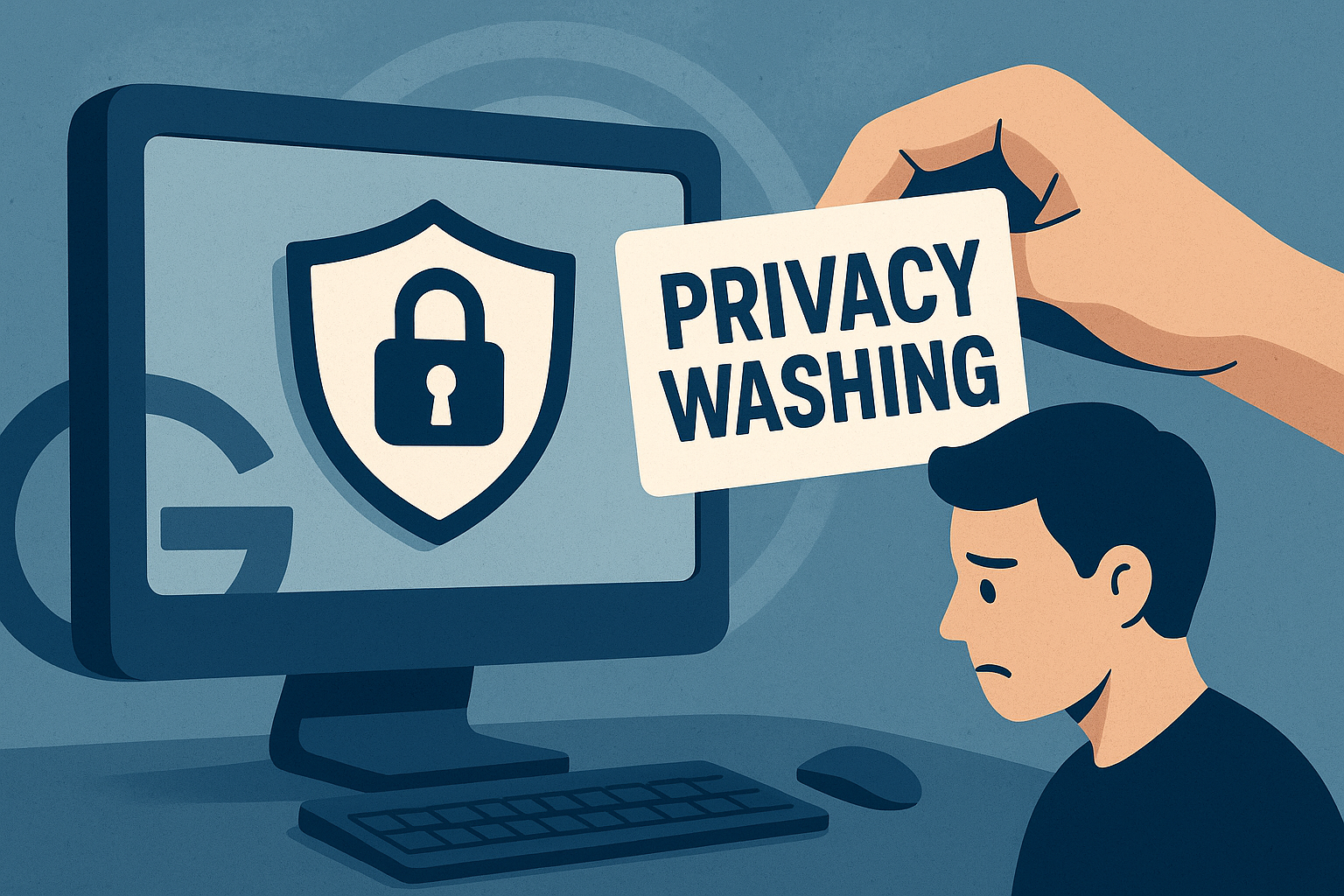Privacy Washing: Why Big Tech Doesn’t Really Care About Your Privacy

Welcome to the age of “Privacy Washing.” Big tech companies like Google, Microsoft, Meta and Apple suddenly seem to care deeply about privacy. But looks can deceive: behind the polished language there’s often a clever marketing trick. What exactly is “Privacy Washing,” why does it happen, and how can you spot it? Let’s break it down.
What Is “Privacy Washing”?
“Privacy Washing” is a marketing strategy where tech giants present themselves as champions of privacy while mainly protecting their own business interests. With polished stories and convenient dashboards they make you feel in control of your data. But look closer and you’ll notice how limited your real choices are—and how your data is still being collected, analyzed and monetized at scale. Even with every setting cranked to “maximum privacy,” you can’t be sure you’re actually out of the tracking net.
Why Do Companies Lean on “Privacy Washing”?
Several forces are driving this trend:
1. Stricter privacy laws
With tougher regulations like the GDPR in Europe, companies must be more transparent about data use. They’re required to offer users privacy controls. But these are often minimal surface-level tweaks, while the core revenue model—collecting and monetizing data—remains untouched.
2. Growing public awareness
After countless privacy scandals and data breaches, people increasingly realize their online lives are far from private. More users seek alternatives or change behavior. Big Tech deploys reassuring privacy campaigns to limit reputational damage and prevent user churn.
3. Data is big business
Just as oil companies exaggerate their sustainability (“greenwashing”), tech companies exaggerate their privacy friendliness. Advertising revenue is their main profit engine. The more they know about you, the better they can target—and the more they earn. As long as the business model runs on ads and profiling, true privacy will never be the priority—no matter how convincing the slogans.
Examples of “Privacy Washing” by Big Tech
Most of Google’s billions in revenue come from advertising. Despite campaigns promising privacy and user control, Google keeps collecting data through all kinds of subtle techniques. Even if you disable tracking, you still see ads—and Google can still follow you via things like fingerprinting and AI integrations (e.g. Gemini in Gmail and Android).
A striking example: Chrome’s Incognito Mode. Many believed it meant anonymous browsing, yet user behavior was still logged. This led to a multibillion-dollar lawsuit—highlighting the gap between promise and practice.
Microsoft
Microsoft showcases privacy tools and productivity boosters. Under the hood, new features like “Recall” in Windows 11 and the “new Outlook” introduce extra privacy risks. Automatic screenshot and email capture stored in the cloud increases legal exposure and undermines confidentiality.
Microsoft also markets a European “Sovereign Cloud.” But even if the data sits physically in Europe, U.S. law can still grant access to American authorities.
Meta (Facebook, Instagram, WhatsApp)
Meta is known for aggressive data harvesting. New “privacy features” like Meta AI roll out without a true opt-in—and cannot be disabled. Supposed teen protections on Instagram filter certain content but do not stop data collection. New apps like Threads ingest even more sensitive data, including biometrics and political preferences.
Apple
Apple brands itself a privacy champion and has indeed limited third‑party tracking in some areas. Yet it still collects data for its own services and ad network. Despite the cleaner image, Apple’s business incentives and data practices are not fundamentally different from other Big Tech players.
The Takeaway: Stay Critical
“Privacy Washing” has become one of the biggest marketing tactics of the digital era. What companies say and what they do rarely align. Campaigns sound convincing, but as long as profit depends on exploiting your data, caution is essential.
Fortunately, real alternatives exist—services that don’t profit from selling your information and are truly transparent. PixelUnion is one of them. We are transparent about what we do with user data (only store it on our European servers). Check our open-source software to verify that yourself.
Don’t be misled. Take your privacy seriously and choose consciously. Real privacy should be the default—everything less is just “Privacy Washing.”